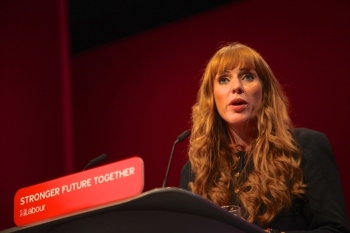Angela Rayner will today write to council leaders urging them to work with the Government on delivering ‘the most ambitious programme of devolution this country has ever seen.’
The deputy prime minister will tell local leaders in areas that have not made a devolution deal – so-called ‘devolution deserts’ – that the Government is ready to help local areas take on powers in areas like transport, adult education and skills, housing and planning, and employment support.
Promising a ‘new devolution revolution’, the deputy PM will write: ‘I want to work with more places to help them use these enhanced powers and role – because I want to drive growth in every part of the country. For any area considering it, now is the time to take the plunge and speak to us about how we can work with you to transform your regions.’
Last week, the deputy PM and Prime Minister Keir Starmer met with all the regional mayors in England and promised that Labour was ready to ‘transfer power out of Whitehall’ through a major programme of devolution. LocalGov








